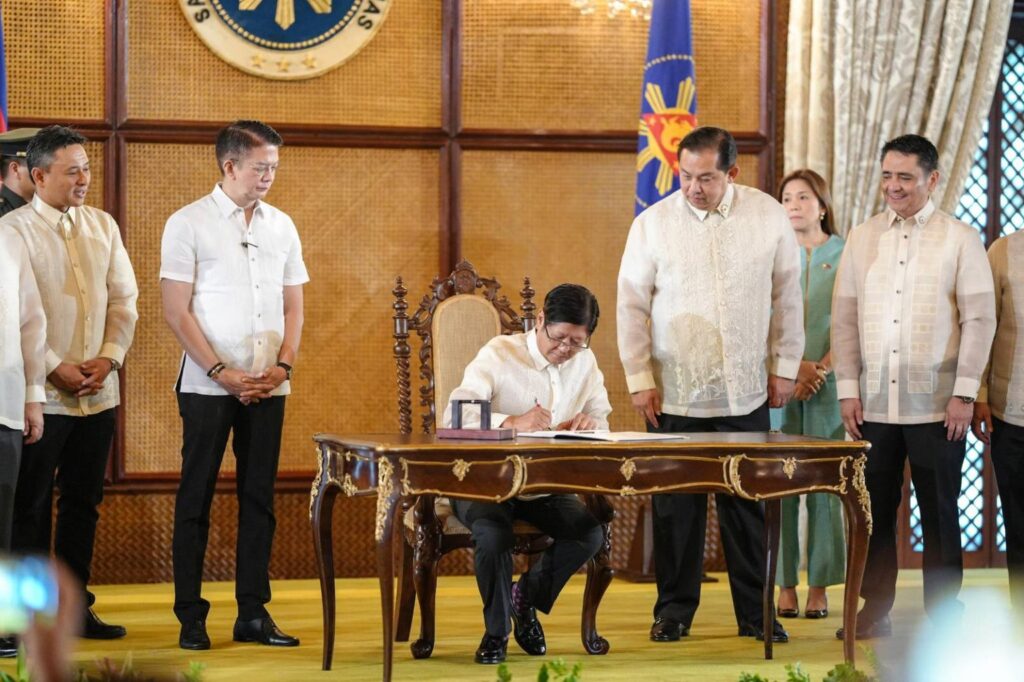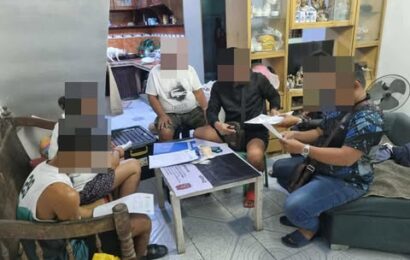
President Ferdinand R. Marcos Jr. on Saturday signed into law two new bills aimed at attaining a strong, responsive, and efficient bureaucracy, and establishing safeguards for the financial rights and welfare of Filipinos.
The newly signed laws are the New Government Procurement Act (NGPA) and the Anti-Financial Account Scamming Act (AFASA).
In his speech, President Marcos said the NGPA, which updated the Government Procurement Reform Act or Republic Act No. 1984, “streamlines the procurement process from three months to just 60 days by standardizing procurement forms and institutionalizing electronic procurement.”
One of the salient features of the NGPA is the provision of 11 new modalities of procurement that will afford greater flexibility for government agencies in choosing the manner of acquiring the best goods and services.
It also introduces a new concept, the “Most Economically Advantageous Responsive Bid,” which considers the qualitative and economic value of a proposal, as an alternative to the prevailing practice of choosing the “Lowest Calculated and Responsive Bid.”
“This frees us from the obligation of selecting the lowest-priced bid when there is a better choice. This will ensure that we get not only the best prices but the best deals for our clients, the Filipino people,” President Marcos said.
“Another important feature is the conduct of Strategic Procurement Planning, which mandates more detailed and purposeful planning to increase the success rates of procurement transactions,” he added.
President Marcos also highlighted the inclusion of sustainable and green public procurement practices in the NGPA, which “demonstrates the country’s commitment to addressing the worsening pollution and challenges of climate change.”
The AFASA, on the other hand, aims to combat the surge of online scamming. It mandates financial institutions to implement necessary safeguards to protect the accounts of Filipinos.
It also defines and penalizes money muling activities (a type of money laundering), social engineering schemes, economic sabotage, and other offenses involving financial accounts. It will also authorize the Bangko Sentral ng Pilipinas to probe and inquire into financial accounts, which may be involved in prohibited acts.
“This is essential in this time as cybercriminals use technology to defraud fellow Filipinos — causing not only personal economic loss through them but also a loss of trust in financial institutions,” President Marcos said.
“It will protect our people from falling prey to perpetrators who target their banks and e-wallet accounts…I hope that, through this law, we can deter the majority of the financial scams that we have been seeing while at the same time fostering greater trust in our digitization efforts,” he added.
The BSP, for its part, welcomed the passage of the AFASA.
“We express our full support for the new anti-financial account scamming law. This will help us strengthen consumer protection and foster trust and confidence in the Philippine financial system,” BSP Governor Eli M. Remolona Jr. said in a statement.
Before concluding his speech, President Marcos thanked the House of Representatives and the Senate for passing the two important laws. He called on them to continue passing “progressive, innovative, and people-centered laws.”
“With you as partners in improving government and uplifting the lives of our people, I’m confident that we will achieve a more inclusive, just, and resilient society,” Marcos said.
SOURCE: Presidential Communications Office (PCO)





